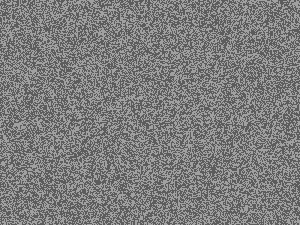 It’s that time of year again: Christmas. I have a million deadlines at work, presents to buy (and wrap) and a ham to order. I have to decide whether to risk putting up a Christmas tree or to avoid it in the interests of not giving the cat an enormous plaything with removable parts. The rainy season is about to begin so I need to get the gutters cleaned. I have to find a new dog groomer, buy printer toner, get the carpets cleaned… If you have kids, they’re probably already on holidays and you’re now a fulltime taxi driver, money distributor and all-around entertainment machine. And, somehow, we’re also trying to write. Insane? Perhaps. Achievable? Yes, but only with the right plan in place.
It’s that time of year again: Christmas. I have a million deadlines at work, presents to buy (and wrap) and a ham to order. I have to decide whether to risk putting up a Christmas tree or to avoid it in the interests of not giving the cat an enormous plaything with removable parts. The rainy season is about to begin so I need to get the gutters cleaned. I have to find a new dog groomer, buy printer toner, get the carpets cleaned… If you have kids, they’re probably already on holidays and you’re now a fulltime taxi driver, money distributor and all-around entertainment machine. And, somehow, we’re also trying to write. Insane? Perhaps. Achievable? Yes, but only with the right plan in place.
Step 1: Decide your priorities
Are you going to commit to writing during the Christmas season? If not, don’t feel guilty – perhaps this is a time when other things need to take priority. But either way, make a decision up front. If you’re choosing not to write right now, set a date when your normal routines will resume.
Step 2: Check the schedule
Look at your schedule and find the days or times when you can most realistically expect to get in some writing time. Block out that time in your schedule and treat it the same as any other appointment. Don’t forget about those little pockets of time which are so easy to fritter away without noticing: waiting for guests to arrive, those precious minutes in the early morning before the household awakes, time spent waiting for dinner to cook. If twenty or thirty minutes a day is all you can find, then lock that time in and protect it.
Step 3: Set goals
This is a crazy time of year so set smaller goals than usual. There’s no point aiming for 3,000 words a day if you know you will be lucky to find half an hour to yourself. Be realistic: aim for half a page, 500 words, one scene. Whatever you can reasonably achieve in the time you’ve blocked out in your schedule. Alternatively, work on small editing tasks so that you can cross individual items off your “to do” list.
Step 4: Enlist the troops
Make sure your family knows what your goals are. Add your writing time to the family calendar and then consider how your family can contribute. Can someone else put on a load of washing? Who can be appointed Chief Fixer of the Leftovers, responsible for finding all of the half-eaten stuff in the fridge and setting it out for dinner?
Step 5: Make time to relax
If you’re running around in a panic because you have three million things to do and you can’t stop going over your mental “to do” list, you can hardly expect to be able to focus on your writing. So take some time out. Write down all of those things in your head so you don’t have to remember them. Give yourself time for a long soak in the bath or to read a book or go for a massage. We’re all stressed to the hilt at this time of year so find some time for you, not just your writing.
Step 6: Don’t forget Christmas
Don’t let yourself get so caught up in trying to meet your goals that you forget what time of year it is: Christmas. This is a time for friends and family, a time to take stock and look forward, a time to be thankful for what we have.
This is my final scheduled post for this year so I wanted to wish all of our Fictorians readers a very merry Christmas. We have big plans for our little blog next year, including regular guest posts and a new regular feature dedicated to the art of storytelling. See you in 2012!





